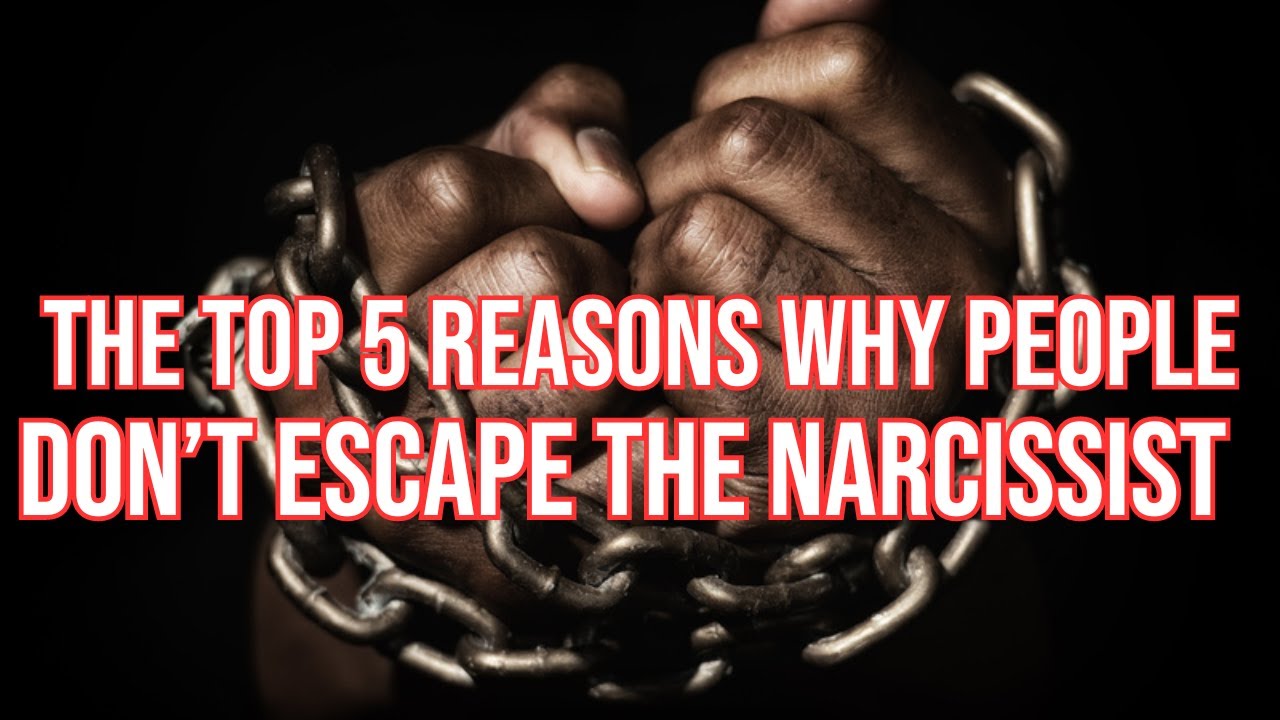This secret about the narcissist will shock you.
Summary
TLDRThis video explains why narcissists tend to move quickly in relationships. It reveals that narcissists are driven by a need to quickly replace their previous partners, using the new person as a rebound to avoid being alone. They rush to prove themselves, wanting to show their ex that the new partner is better. Additionally, narcissists hurry to gain control over their new partner, ensuring emotional dependency, and they act fast before their true nature is exposed. The video sheds light on the narcissist's manipulative tactics and the psychological games they play to maintain power in relationships.
Takeaways
- 😀 Narcissists move on quickly to avoid being alone with their thoughts and guilt, using new partners as 'rebounds.'
- 😀 The narcissist's need for validation drives them to find a new partner quickly to prove they're 'better' than their ex.
- 😀 Every relationship for a narcissist is a game, and they move fast to 'win' by quickly securing new supply.
- 😀 The narcissist rushes into relationships to hook the new partner and establish control before their true self is revealed.
- 😀 Moving fast is a strategy to emotionally invest the new partner, making it harder for them to leave later on.
- 😀 The narcissist’s mask (idealized version of themselves) doesn’t last long, and they move fast before it starts to slip.
- 😀 Quick relationships help the narcissist avoid dealing with the emotional consequences of their past breakup or discard.
- 😀 Narcissists see their partners as tools to hurt their exes, even if the partner isn't aware they're being used this way.
- 😀 The narcissist uses quick relationships to punish their last partner, whether they were discarded or did the discarding.
- 😀 They want to keep their new partner emotionally attached early, often by rushing significant life changes like pregnancy or cohabitation.
- 😀 Narcissists need to maintain control over their relationships, and moving fast helps them achieve that before the partner can see the real them.
Q & A
Why do narcissists move on so quickly after a breakup?
-Narcissists move on quickly because they cannot tolerate being alone. They immediately seek a new partner to replace their emotional needs and avoid dealing with feelings of guilt, self-reflection, or loneliness.
What is the 'rebound effect' in the context of narcissistic relationships?
-The rebound effect refers to the narcissist quickly finding a new partner after ending a relationship, using them to get over the previous person. This new partner serves as a way to distract from the emotional fallout of the last relationship.
Why does a narcissist feel the need to prove something to their ex-partner?
-Narcissists are constantly seeking validation and are driven by the need to show their exes that they can replace them with someone 'better' — someone who is more attractive, wealthy, or popular. This helps them feel in control and superior.
How does a narcissist use the 'new supply' to their advantage?
-The narcissist uses the new supply as a tool for validation and to demonstrate their worth to their ex. The new partner becomes a way to show that they can 'win' and move on quickly, further proving their superiority.
Why do narcissists rush the relationship process with a new partner?
-Narcissists rush relationships to quickly gain control over the new person and to create a trauma bond. They move fast to hook the new partner emotionally, making it more difficult for them to leave later when the narcissist begins manipulating or abusing them.
What is a 'trauma bond' and how does it relate to narcissistic behavior?
-A trauma bond is a psychological connection where the victim feels emotionally attached to the abuser, even though they may be mistreated. Narcissists create this bond by rushing major commitments, like moving in or having children, which makes it harder for the victim to break free from the relationship.
Why do narcissists want to hurry up and make the new partner 'hooked'?
-Narcissists want to secure the new partner quickly, as it allows them to establish control. By making the partner emotionally dependent or attached, they ensure the partner is less likely to leave when the narcissist starts showing their true self.
What happens when the narcissist's mask starts to fall off?
-The 'mask' is the idealized version of themselves that narcissists present at the beginning of the relationship. Once the mask begins to slip, the narcissist's true, manipulative, and abusive nature starts to show, but by then, the new partner is often too emotionally involved to easily walk away.
Why do narcissists mirror their new partner in the early stages of the relationship?
-Narcissists mirror their new partner to create an illusion of compatibility and to make the partner feel as though they are deeply understood. This increases the chances of the new partner falling in love with them, which the narcissist uses to gain emotional control.
What does it mean that 'everyone is a rebound to a narcissist'?
-It means that from the narcissist's perspective, every romantic partner is used to replace or 'get over' the previous one. The narcissist doesn't see the new partner as unique or special; rather, they are just a tool to boost the narcissist's ego and self-esteem.
Outlines

This section is available to paid users only. Please upgrade to access this part.
Upgrade NowMindmap

This section is available to paid users only. Please upgrade to access this part.
Upgrade NowKeywords

This section is available to paid users only. Please upgrade to access this part.
Upgrade NowHighlights

This section is available to paid users only. Please upgrade to access this part.
Upgrade NowTranscripts

This section is available to paid users only. Please upgrade to access this part.
Upgrade NowBrowse More Related Video

When Does The #Narcissist BEGIN To FEEL The EFFECTS Of LOSING A REAL ONE?!!

🔴They Feel Empty! Do Narcissists Care That You’re No Longer With Them? | Narcissism | NPD

Why you're so UNHAPPY when you are with a NARCISSIST

Why Do Narcissists Make You Leave

The Top 5 Reasons People Do Not Escape the Narcissist

Do Narcissists Really Ever Leave???
5.0 / 5 (0 votes)